Papua New Guinea
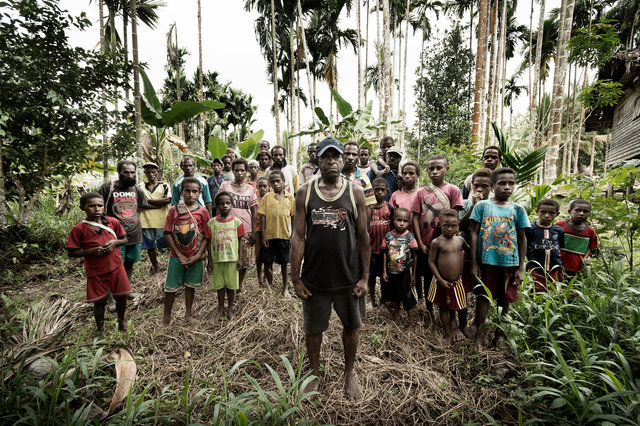
Disposed from their traditional lands, West Papuan refugees live in settlements in dense jungle along the Indonesian border.
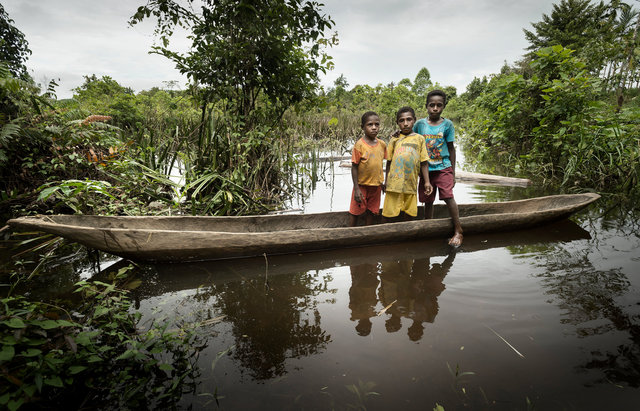
Mine sediment causes river beds to rise, forcing mine-contaminated water onto surrounding fields...
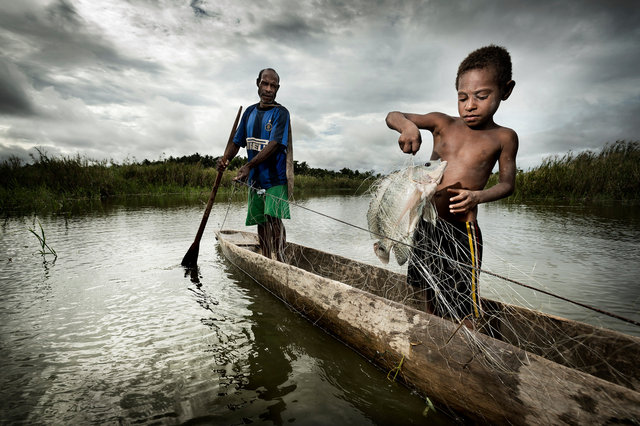
Toxic mine-waste is being discharged directly into the Fly river. “Some of the fish you taste it - it don’t taste like fish. When you cook it, oil comes out.”
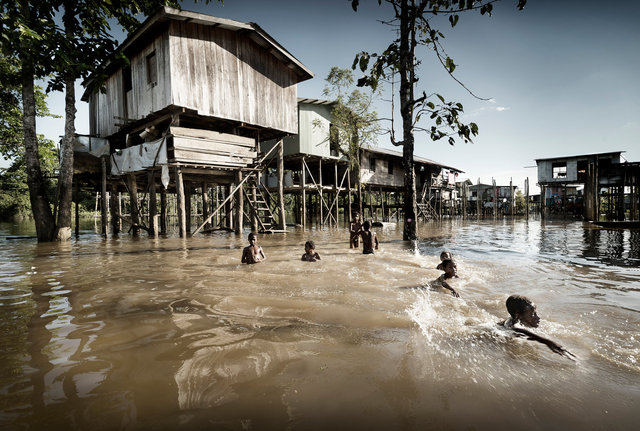
...as well as into village sites.
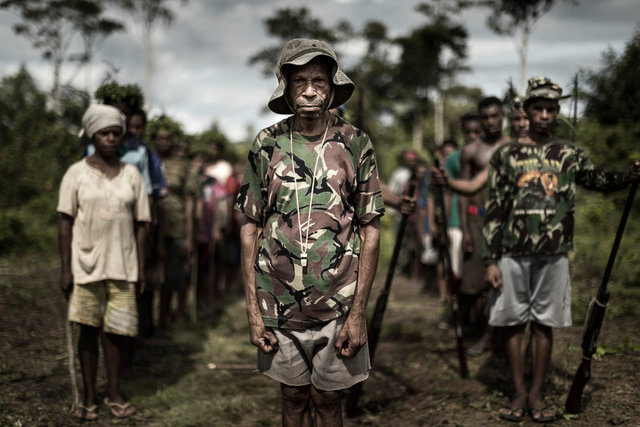
Thousands of refugees fled to PNG and members of the resistance built up armed groups deep in the jungle.
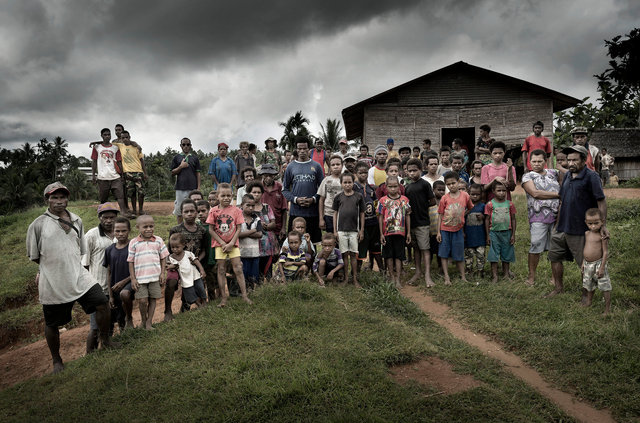
Regarded by the PNG government as illegal border crossers, the refugees possess no legal status, have no access to basic rights. Provision of fundamental health, educational and social services is left solely in the hands of the Catholic Mission.
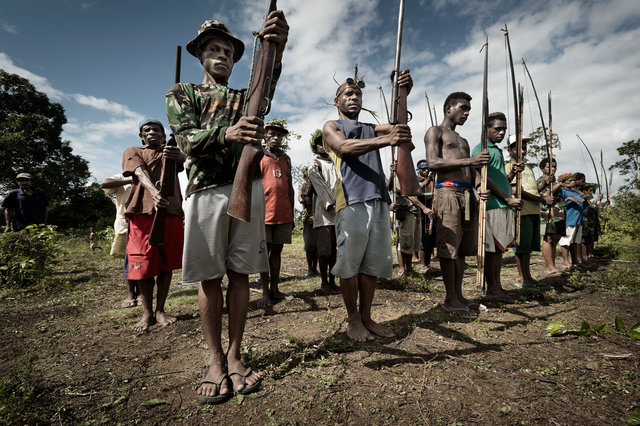
Founded in 1964, many Papuans joined in the ranks of the Free Papua Organization (OPM) to challenge Indonesian authority.
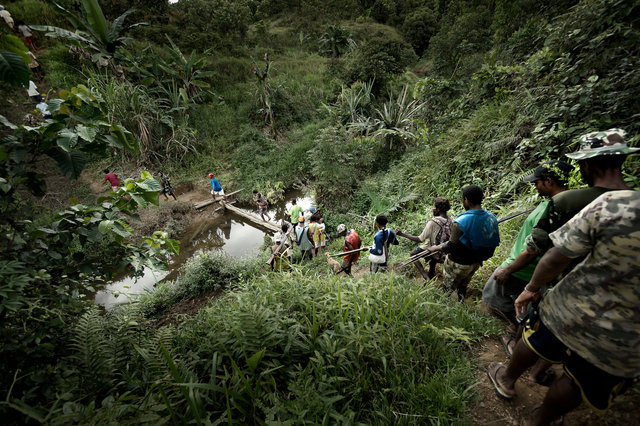
These soldiers are members of the West Papua National Liberation Army (TPN), the military wing of the OPM.
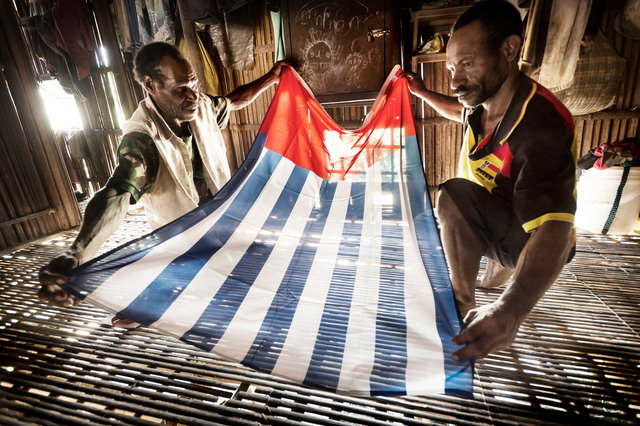
Raising the Papuan Morning Star flag commonly leads to arbitrary arrests under a draconian treason act, a left-over from colonial times.
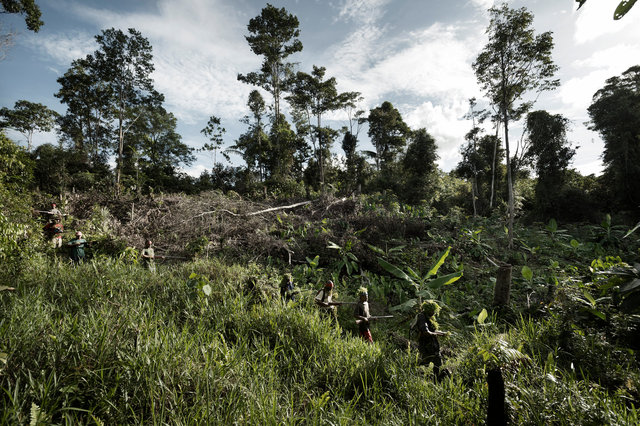
Since Indonesia took control of West Papua, this tribal army has been engaged in a low-intensity conflict with the Indonesian military forces.
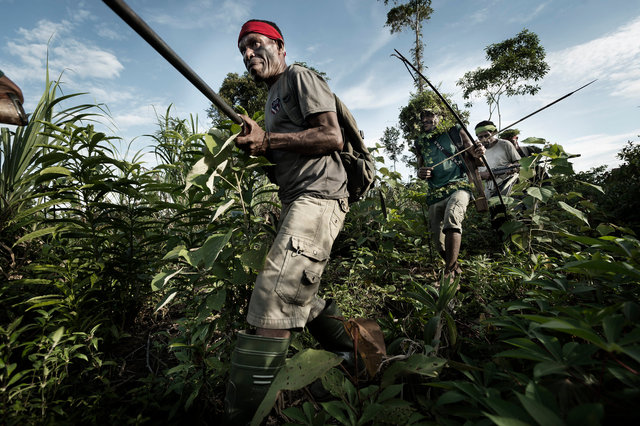
Poorly armed, the TPN is severely disadvantaged in the face of its well-funded enemy.
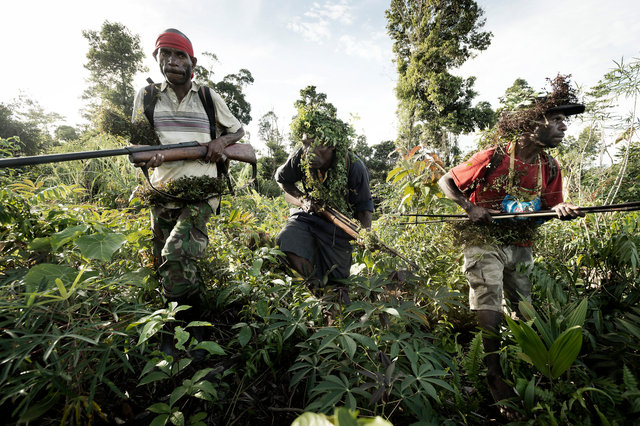
A few have old self-made guns and rifles, the rest carry traditional spears or bows and arrows.
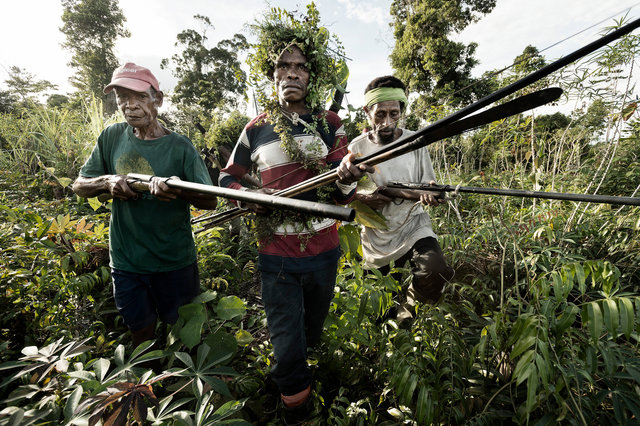
“We will never stop fighting until we get independence for our land, even if we have to die for it.”
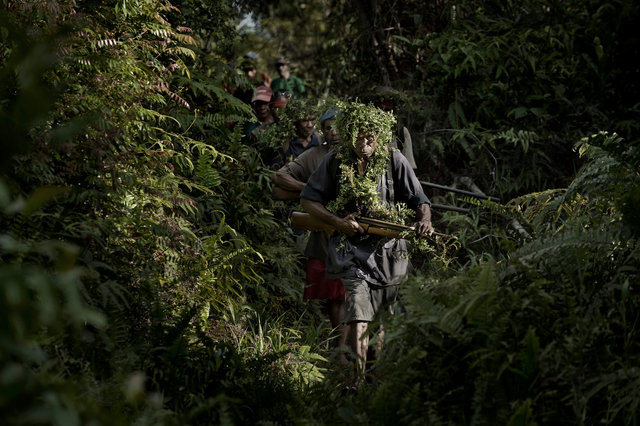
Hidden in dense jungle, the fight continues to present day.
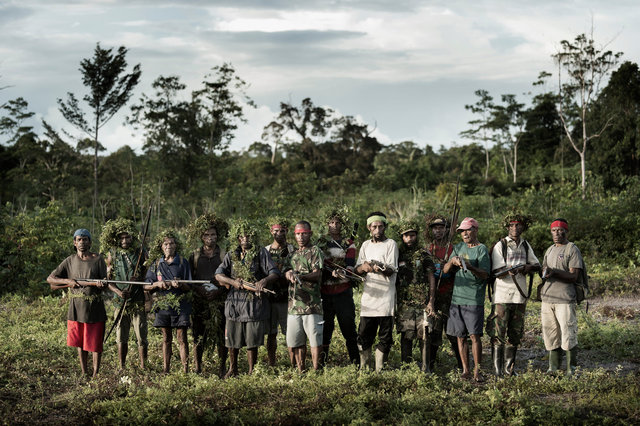
A major grievance and source of conflict over the years has been the Grasberg mine - the largest copper and gold mine in the world.
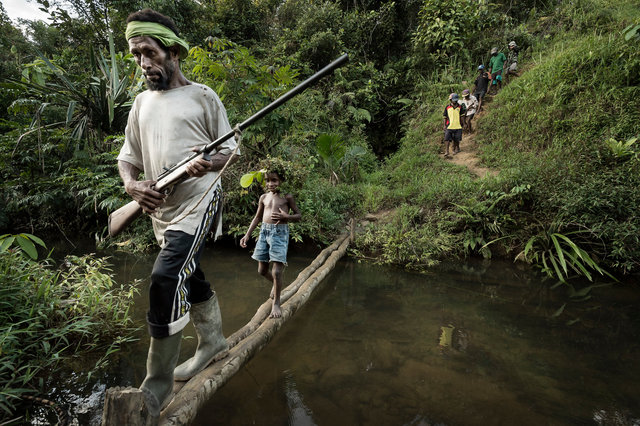
If the fast rate of resource extraction continues, West Papua will “lose millions of hectares of forests [and] be stripped of valuable resources.”